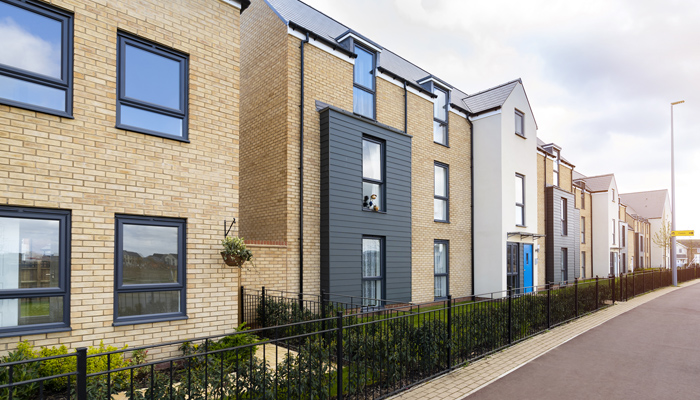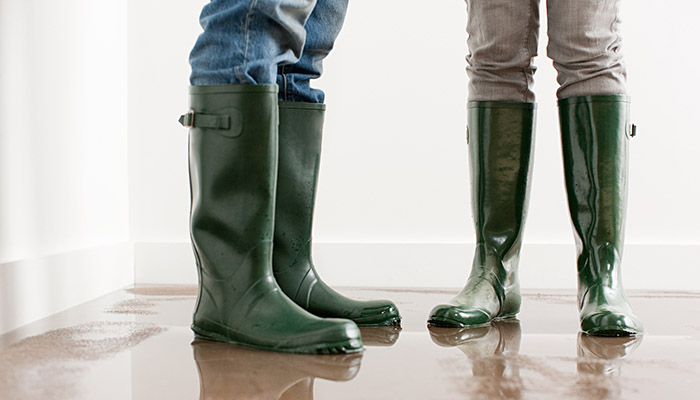How Smart Is Your Home?
Thirty years ago, the idea of your home being controlled by a polite talking portal would seem ludicrous but now – it’s totally normal. From voice assistants and smart thermostats to connected locks, lights and cameras, smart devices are designed to make our lives easier, safer and more efficient.
But as our homes get smarter, they also get increasingly vulnerable to being targeted by cybercriminals.
This blog explores what makes a home smart, the data these devices collect, and how homeowners can protect themselves from the growing threat of cybercrime.
What makes a home smart?
A smart home uses internet-connected devices to automate and control everyday functions. This can include:
- Smart thermostats that learn your heating habits
- Cameras and doorbells that stream live footage to your phone
- Voice assistants like Alexa or Google Home
- Smart locks, lighting and appliances
While these devices all serve a multitude of benefits, they also need data to run efficiently – and lots of it. So, what data does your smart tech actually collect?1
It can include audio and video recordings, location data, usage patterns and routines, as well as personal preferences and behaviours. While the purpose of collecting this data is to help tailor the experience, it also raises important questions about privacy and security – creating a digital footprint that can be vulnerable to misuse.
Who has access to your data?
Unfortunately, it’s not just the device manufacturer who can access your data. In fact, your data might be passed on to third-party apps, cloud service providers and even advertisers2.This will all depend on the device and its settings. If that data isn’t properly protected, it could be exposed through hacking, surveillance or breaches.
What are the privacy risks?
If a cybercriminal gets hold of your data, they could use this to:
- Hack devices and access live feeds
- Steal personal information
- Launch ransomware attacks
- Profile users based on behaviour
Even something as simple as a smart lightbulb could be vulnerable to attack in your home if it’s not properly secured3.
How does this affect your home insurance?
Some insurers offer discounts for smart security features like monitored alarms or cameras, but most traditional home insurance policies don’t cover cyber-related incidents. That means if your smart device is hacked, or your personal data is stolen, you may not be covered.
Common exclusions include:
- Data breaches
- Ransomware
- Smart device hacking
- Identity theft or financial fraud
These policies are designed to cover physical damage, not digital threats.
What can homeowners do?
To protect your smart home, start by using strong, unique passwords for each device and keeping all software and firmware up to date. Choose reputable brands that offer clear privacy policies and take the time to review and limit data sharing in your device settings.
Where possible, enable two-factor authentication for an added layer of security. It’s also worth reviewing your insurance cover. If your home includes smart technology, you may need additional protection against cyber risks4.
Work from home?
When working from home, it’s not only your data that you need to consider – it’s your employer’s. That’s why it’s important for businesses to be covered by dedicated cyber insurance.
If you’re a small business owner with employees that work remotely or even just from a personal device, it’s crucial that you consider standalone cyber cover as part of your overall risk strategy.
To find out more about cyber insurance, give us a call on 0330 029 5626 or visit our dedicated cyber insurance page.
Consistent with our policy when giving comment and advice on a non-specific basis, we cannot assume legal responsibility for the accuracy of any particular statement. In the case of specific problems, we recommend that professional advice be sought.
About the author
 Marc Rocker, Head of Cyber has been with Towergate for over 15 years advising commercial clients of all sizes on their business insurance needs.
Marc Rocker, Head of Cyber has been with Towergate for over 15 years advising commercial clients of all sizes on their business insurance needs.
As Head of Cyber Insurance, Marc has responsibility for ensuring that the advice and products that Towergate provides meet clients’ needs. Marc is a member of the British Insurance Brokers’ Association (BIBA) cyber technical committee.
Consistent with our policy when giving comments and advice on a non-specific basis, we cannot assume legal responsibility for the accuracy of any particular statement. In the case of specific problems, we recommend that professional advice be sought.
Consistent with our policy when giving comment and advice on a non-specific basis, we cannot assume legal responsibility for the accuracy of any particular statement. In the case of specific problems, we recommend that professional advice be sought.
Sources:
1: Data Protection Academy: Smart Home Privacy Concerns
2: Data Protection Academy: Smart Home Privacy Concerns
3: https://www.ncsc.gov.uk/guidance/smart-devices-in-the-home
4: https://www.ncsc.gov.uk/guidance/smart-devices-in-the-home
Date: July 23, 2025
Category: Home and Property














